Oppenheimer – the Destroyer of Worlds

Oppenheimer was the most important person that ever lived, said Christopher Nolan when he explained his desire to tell J. Robert’s story. As if he would need any justification to tell such a complicated and complex story! It took me a minute to gather my thoughts but here it goes – long anticipated review of the most significant film of the decade.
Prometheus stole fire from the gods and gave it to man. For this he was chained to a rock and tortured for eternity.
I was waiting for this film for over a year, ever since it was announced and first pictures of Cillian Murphy as J. Robber Oppenheimer were released. And right in that moment, I knew it was going to be great. By now you all should know how much I love Christopher Nolan, and that I for sure will not be objective, but… If you know that, then for sure you are well aware of me not caring about objectivity.
Father of the atomic bomb – as TIME magazine named him – was troubled, greedy, genius and full of regret by the very end. I’ve watched this film 7 times so far (yes, so far) and I can tell you this: with each one I can feel the weight of remorse getting heavier. Every time I see that last scene and hear the music written for it… It’s horrifying.
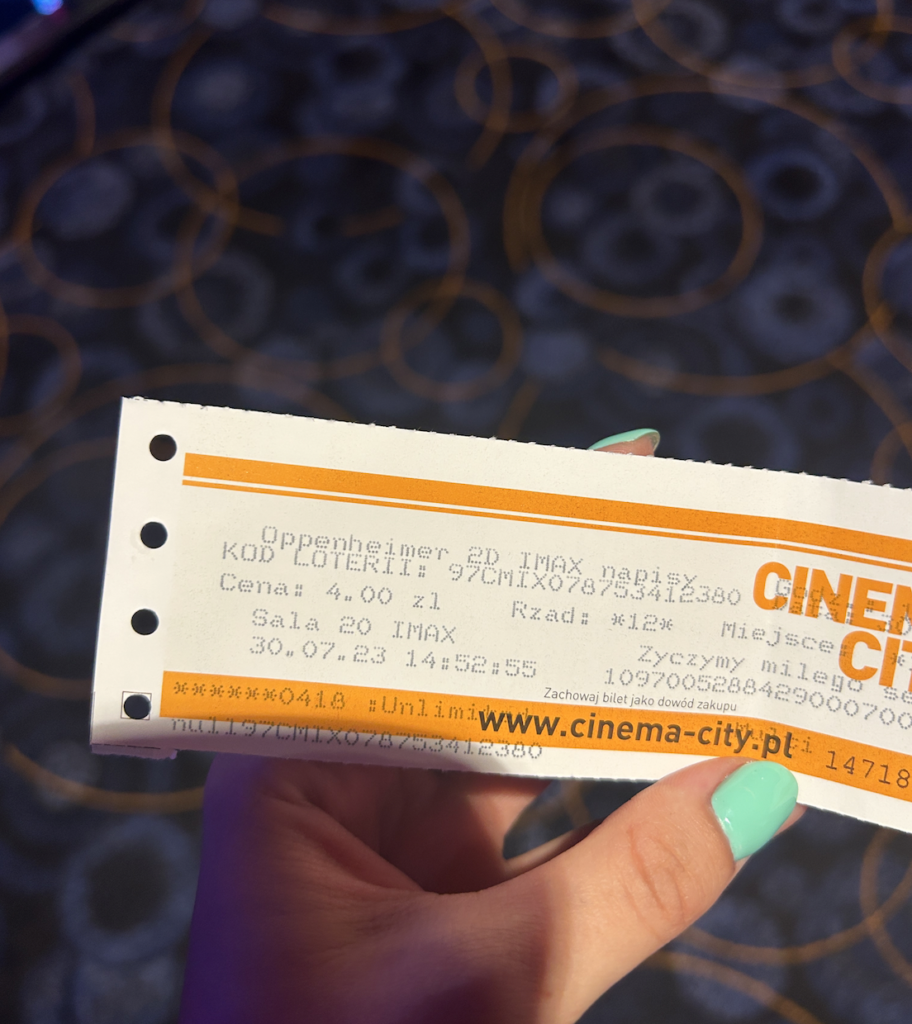
As Murphy said in the film: the bigger the star, the more violent its demise. What a beautiful yet tragic prophecy from the prophet himself. Because that’s who people have seen in Oppenheimer: a prophet, the American Prometheus. And if Dunetaught us anything about prophets, it’s that they usually end up broken, living with the terrible consequences of their own actions.
The important thing isn’t can you read music, it’s can you hear it. Can you hear the music, Robert?
Everything in the film made sense, even though a few storylines made me hungry for more – like with Jean Tatlock. Each bit of the history we got was a tiny piece of the puzzle, creating a very complex and multidimensional portrait of Oppenheimer. We start off with a troubled young man, tormented by visions of the hidden universe.
Today I saw it with my mum and Kate (so yes, two of the most important Kates in my life, assembled together to share this experience) and I asked my mum if she noticed the similarity between me, Oppenheimer and Einstein. She immediately replied: Yes, you are just as genius. I laughed, because she didn’t even blink, you know? Parents’ love knows no bounds.
I mean the despise for mathematics, of course. And well, I will forever tell myself that they both weren’t really THAT good at it. Let’s leave it at that, shall we? But what I wanted to say is that even though brilliance (and therefore being genius) does make up for a lot. But, at no point in life it’s a guarantee of wisdom.
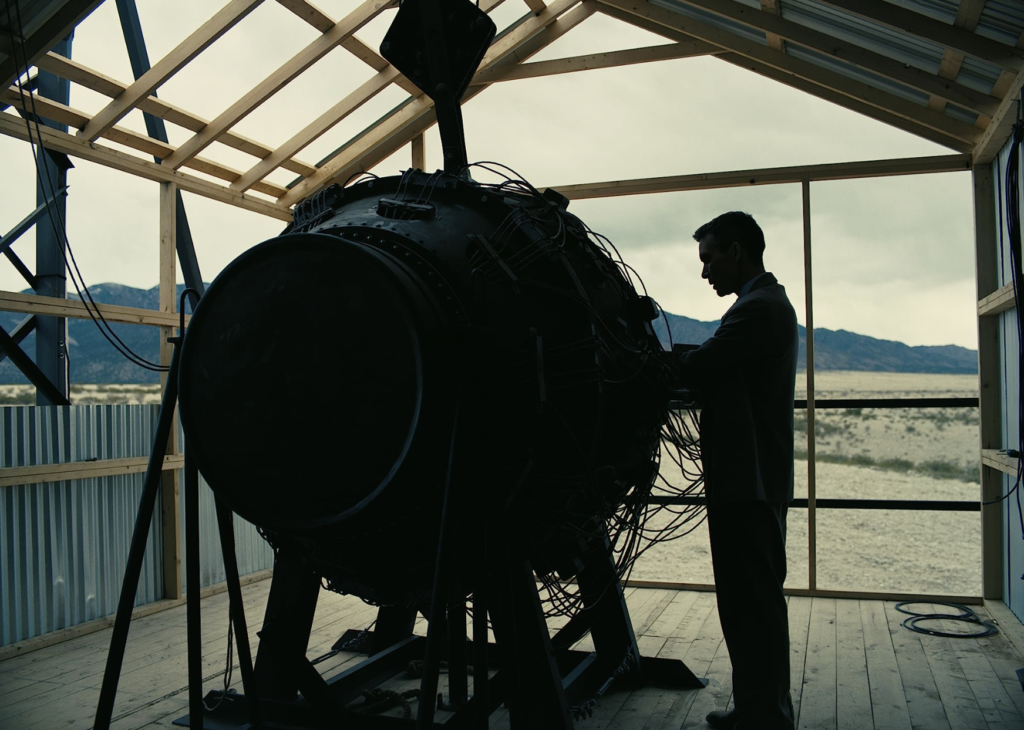
Wisdom comes with experience, and as we all know… Theory only can only take you so far, no? Now, I did what Nolan wanted – watched Oppenheimer without digging into the story. Though you can imagine how hard it was for me. But I loved every bit of it, I loved the fact that I am not able to stop thinking about it, long two weeks after the premiere.
They need us for who we are, so be yourself… only better.
For me, Oppenheimer is a gift that keeps on giving. Nolan himself once said that you will never going to learn something as profoundly as when it’s purely out of curiosity. And believe me, this film will do that to you: suddenly, people are learning all about fission and fusion; they are reading about Heisenberg, Bohr, Blackett, Bethe…
And it’s wonderful. I told my friends that Oppenheimer is like Avengers for nerds and I stand by this opinion. Hell, I would pay to see that universe expanded and explored. Can you imagine having movies about all of these groundbreaking theories, told in a very Nolan-way? Chris opened the door, but with no intention of going through them himself.
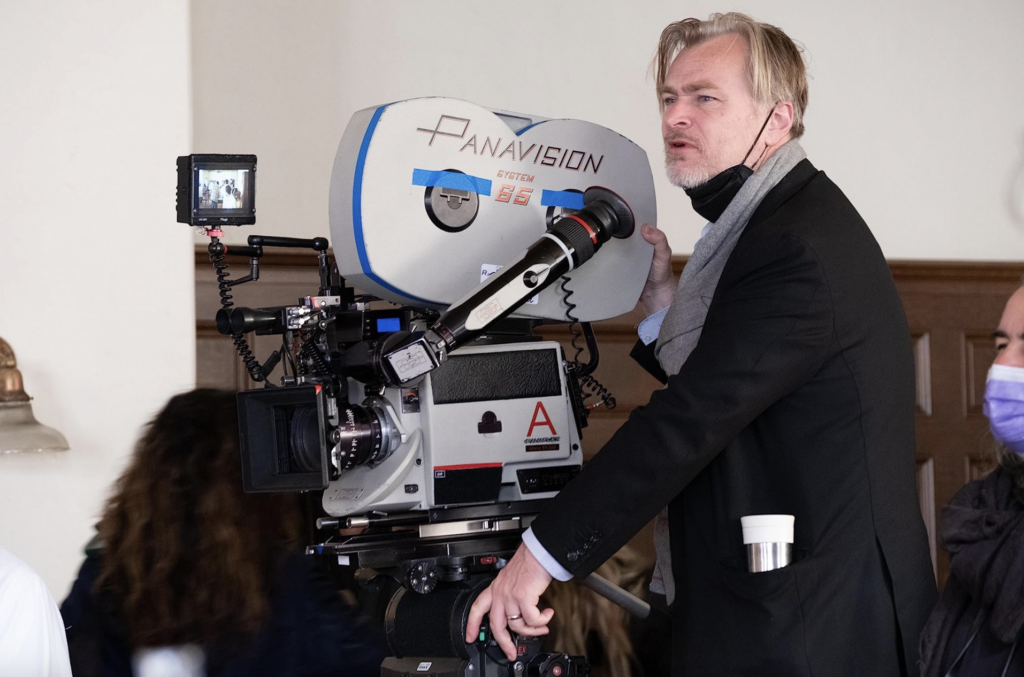
It is also quite a universal story or a cautionary tale if you will. Right after I watched it on Friday the 21st, I obviously had a million thoughts. One of them, emerging from the overwhelming chaos, was the contemporary dangers of tempting invention: AI. Don’t get me wrong, I use it every day and by no means I will compare it to the atomic bomb.
But there are certain similarities to the way humans are “choking” on the technology. Literally, after I watched it, I texted Kate saying: “Listen, whatever we are doing with AI now, I want to get involved so I can stop it if it goes too far” – that’s how panicked I was.
You are the man who gave them the power to destroy themselves. And the world is not prepared.
7 times I watched that last scene and 7 times the goosebumps crossed through my body, chilling my blood. Why did Oppenheimer even agree to be a part of that project? Did he really want to be the most important man that ever lived? Which Oppenheimer was the real one? Because in these colored scenes, I was empathetic towards him. I understood the desire to explore, the need to fathom beyond.
But shouldn’t there be a limit? I don’t know. It’s hard for me to imagine there is one. There should be one, but wouldn’t that mean giving up our freedom? Not like we have much of it anymore… So again, putting restraints on one’s mind doesn’t feel right.
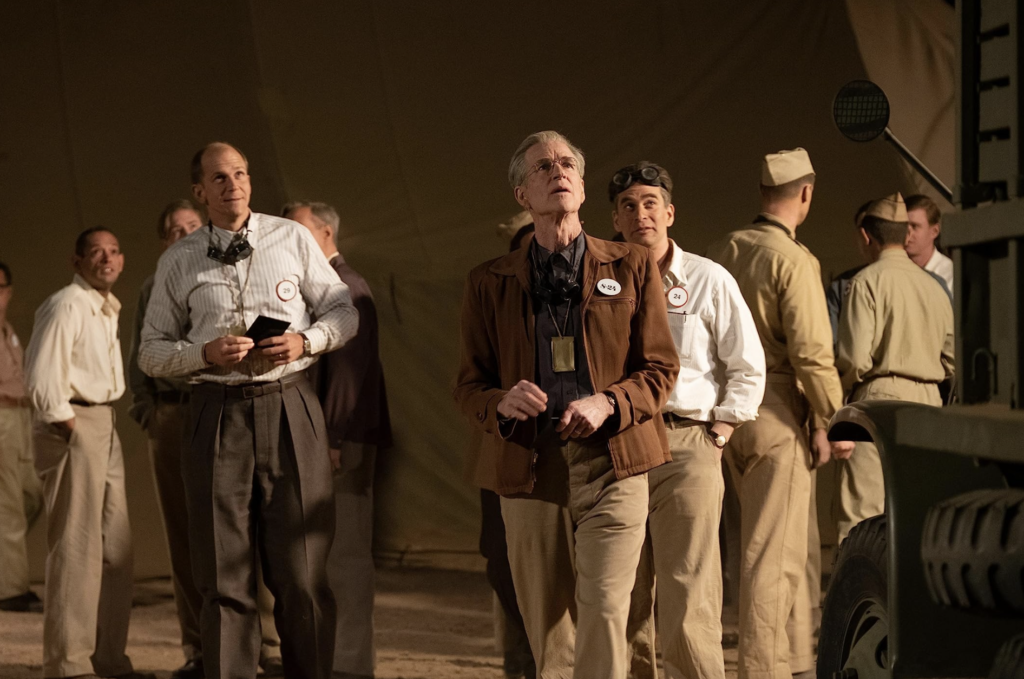
You know what else doesn’t feel right? Dropping an atomic bomb. It falls all the same – on just and unjust. A gift that keeps on giving, I said? It’s also a painful, dreadful curse that made me sick to my stomach, realizing the obvious gravitas of the consequences. I’ve said it a million times: we are our own worst enemies.
One thing that haunted me very specifically today was what Edward Teller (Benny Safdie) replied to Oppenheimer’s words about any potential war becoming unthinkable… Yes, until someone builds something bigger.
They won’t fear it until they understand it. And they won’t understand it until they’ve used it. Theory will take you only so far.
Technical excellence is nothing new with Chris Nolan, but Oppenheimer is definitely the brightest jewel in his crown. Do I even have to mention the recreation of a nuclear explosion without any CGI? Also, I think it’s important to make a distinction here: special effects are the things that you (them) actually do on set, on the ground; whereas visual effects are the things you (them) add during the post-production. Why is the distinction important? Because Nolan spoke with experts on how to use both things. Meaning, the explosion we saw during Trinity test was real, but the computer (so the practical part of visual effects) was used to layer things up, to combine and mix.
Nolan also wanted to shoot in a real-real location. Some parts of the movie were filmed in Los Alamos (now heavily modernized and adjusted for tourists), some were filmed in a recreated set. And to be honest? I expected nothing less.
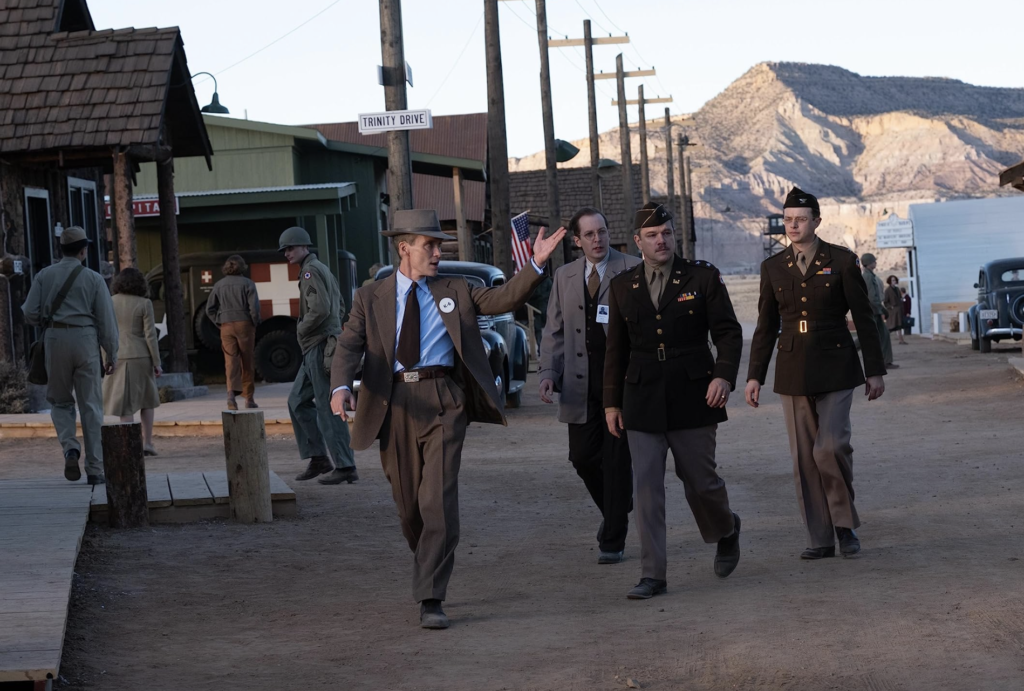
One of the most extraordinary things in Oppenheimer from the technical point of view was sound – both the phenomenal score and the general mixing (so the use of sound and music). I am not going to lie to you: for a very long time, the Nolan-Zimmer duo was a match made in heaven for me. Then with Tenet being handed over to Ludwig Göransson, I was cautious. I like the soundtrack from that film, but let me tell you – score to Oppenheimer is something else.
Generally, the purpose of any movie soundtrack is to give the audience a hint on how they should feel in a particular moment. Göransson created a space. A space, where audiences can feel whatever the want/need to feel: be that fear, anxiety, overwhelming sadness, empowerment, transition, fusion or fission.
Are you saying that there’s a chance that when we push that button… we destroy the world?
The stamping feet throughout the film that later bring us to THAT scene is simply genius. But for me, there were different moments I found brilliant. Have you noticed the impact the soundtrack made, applying the solemnity of certain moments: young Oppenheimer discovering his “calling” outside of the lab (that scene when he looks at Picasso’s painting and shatters glass, Can you hear the music 0:37-1:41).
Another one is when Oppie talks with Rabi at Los Alamos. Speaking of Isidor Rabi (David Krumholtz) – what a fantastic voice of reason for Oppenheimer. Loyal friend, who always “called the bullshit out”. So, back at Los Alamos he told Oppie: be yourself, but better – I felt that in my bones (American Prometheus 1:21-1:55).
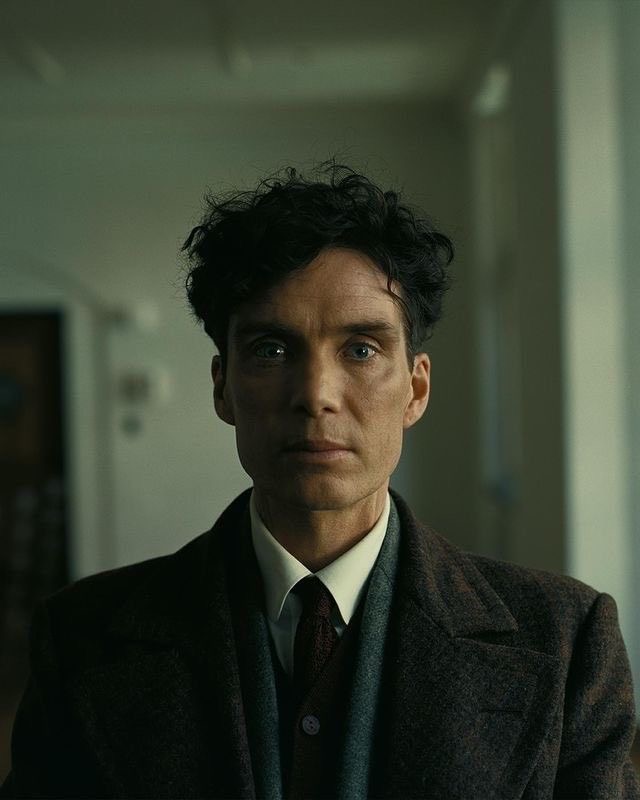
Finally, the ultimate scene of the last (first?) conversation between Oppenheimer and Einstein. That scene alone deserves a place in a museum, but the use of soundtrack is a pure masterclass, making me cry (Destroyer of worlds, slowly burning at 1:29, moving just slowly enough to break you at 2:06 till the very end).
I don’t remember a score so perfectly fitting a film. And I’ve seen many movies, listened to a million minutes of soundtracks. I don’t say it lightly, Lot, so that should mean something. Ludwig created a real masterpiece.
Amateurs chase the sun and get burned. Power stays in the shadows.
Let’s talk about the cast. It was out of this world, atomic one might say (puns, right?). Cillian Murphy was the only right choice for J. Robert Oppenheimer and he gave a performance of a lifetime, completely losing himself (and Tommy Shelby, for that matter) in the character. I’ve watched it 7 times so I’ve got plenty of time to study it carefully. His performance was brilliant.
With Cillian being the main course, he had an extraordinarily strong set of supporting performances – “supporting” being absolutely diminishing and redundant here. Firstly, because there was no need to support anything. Secondly, each (and I mean every single one) actor and actress gave a memorable performance.
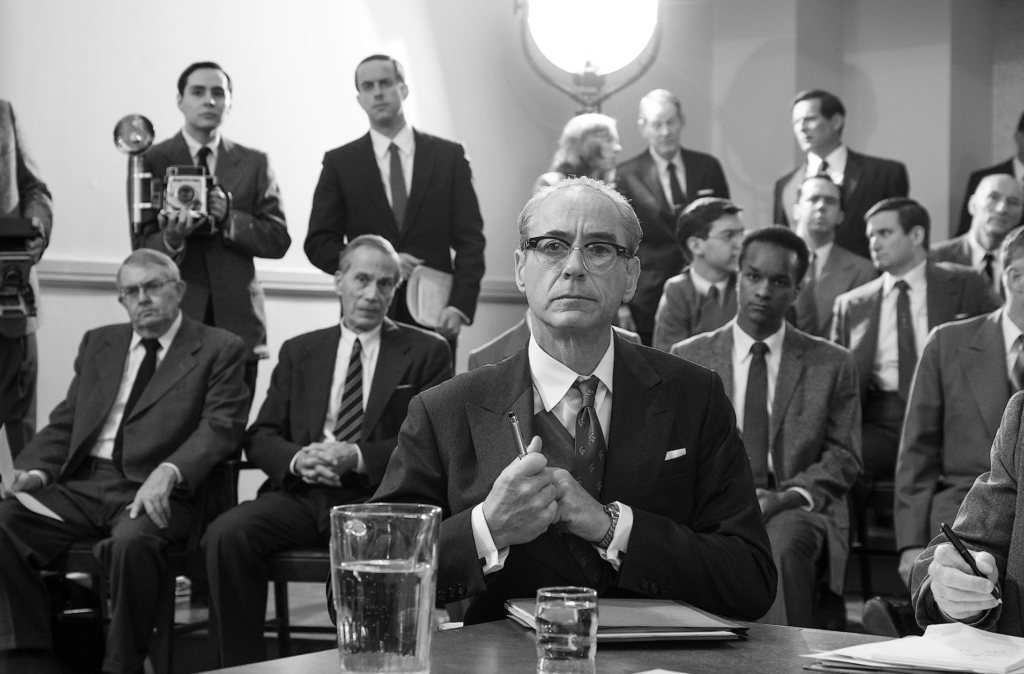
Starting with stone-cold, deceiving and self-important Lewis Strauss (played by Robert Downey Jr.) – now I am calling it RDJ’s role of a lifetime. What a fantastic plot twist (for people who didn’t dig into the story, of course!)! This performance could easily be a masterclass for youngsters. Equally remarkable Emily Blunt as Kitty Oppenheimer – starting off as charmingly lost and unsure, evolving into troubled and torn wife to another genius, willing to push and support him through it all. Her testimony scene is the one that should seal her Oscar. In that scene, she slayed, owned the room, ate and left no crumbs.
The rest of the cast: Josh Hartnett (Ernest Lawrence) – great to say the least; Kenneth Branagh (Niels Bohr) – amazing in his few minutes, but it was all we needed; Rami Malek (David Hill) – boy did I flip? HELL YES, what a great arch and a silent hero; Casey Affleck (Boris Pash) – persistent was one word, but intense and intimidating? Yes. Alden Ehrenreich (Senate aide) – loved the savage moments, as he slowly put the pieces together; Jason Clarke (Roger Robb) – wow, this was an amazing performance, hats off.
Tom Conti (Albert Einstein) – the greatest scientific mind of *his* time and what a bone-chilling ghost of the future for Oppenheimer. Loved that, perfect casting and very impactful performance. Matthias Schweighöfer (Werner Heisenberg) – all full minute on screen but you know what? It was amazing. David Dastmalchian (William Borden) – enigmatic, sinister, on a mission. Gustaf Skarsgård (Hans Bethe) – took me a minute to figure out it was him but he was amazing and kind of funny in his role. Jack Quaid (Richard Feynman) – I am not sure about this one, but it wasn’t terrible. Not sure I can see past Hughie here.
Now I am become Death, the destroyer of worlds.
Let’s talk about Florence Pugh and her character – none less than pivotal for Oppenheimer’s character and general story. I will admit – I wish she had more time or scenes, but… Again, the bigger the star, the more violent its demise, right? Due to her limited time on screen, Florence’s performance left me scarred and bruised. The emotional depth was something new and refreshing. In real life, Jean was a bigger part of Oppenheimer’s story, but having that glimpse was enough for me to understand her importance.
And also, there is Matt Damon, also known as my first celebrity crush. He played Leslie Grovers, the general behind the Manhattan Project. His interaction and growing “friendship” with Oppenheimer was engaging to witness. In a way, he did protect him in the end, right? Sometimes it is all about trust, and I think that they both trusted each other.
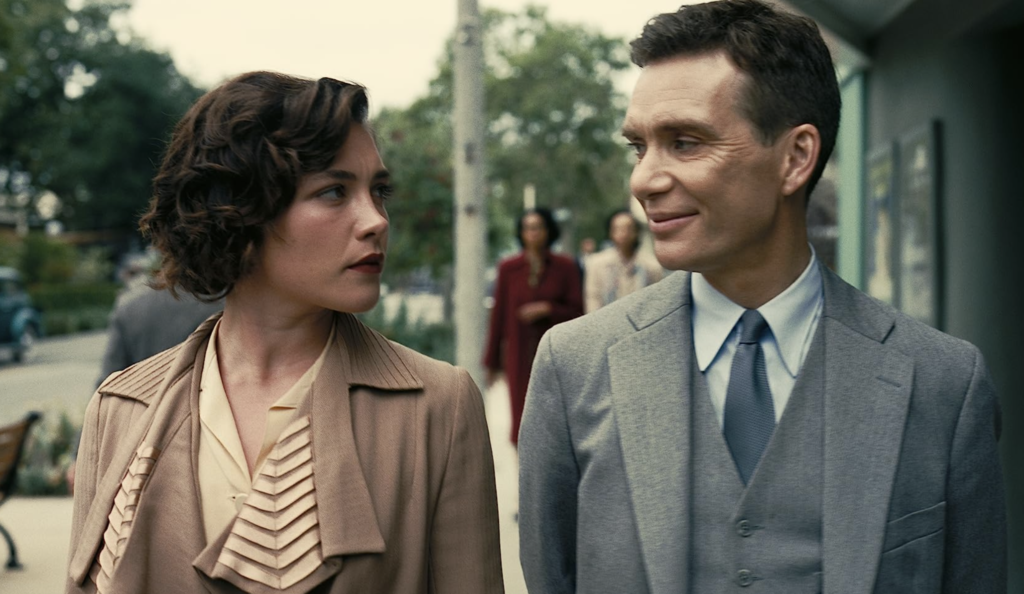
Honorary mention for Gary Oldman who was for sure a well-kept secret and a wonderful realization for every moviegoer who watched Oppenheimer. Seeing him for that brief moment as president Harry Truman, being so full of himself… Wow. Bravo!
Is anyone ever going to tell the truth?
3 hours long, Oppenheimer is presented to us on two dimensions – subjective (colored sequences, labeled as “Fission”) and objective (black and white scenes, labeled as “Fusion”, shot on IMAX cameras, for the first time ever, by the way). And if you look closely, you will see a difference in J. Robert Oppenheimer. It’s a not-so-subtle difference in his attitude.
The scenes in color made me feel more empathetic towards everything that happened. I could relate to Oppenheimer’s troubled soul in the beginning, knowing full-well what it means to be anxious and tormented by creativity that needs to be unleashed, channeled into something. I felt bad for his remorse and emotional turmoil. The consequences of his actions – both personal and professional – weighted heavily on him and on me.
On the other hand, scenes filmed in black and white served as a harsh reminder of the truth – Oppenheimer embraced his reputation, his work and consequences, using it for the world to forgive him eventually. After all, he meant well, right? He wanted to end the war and that was the goal at hand.
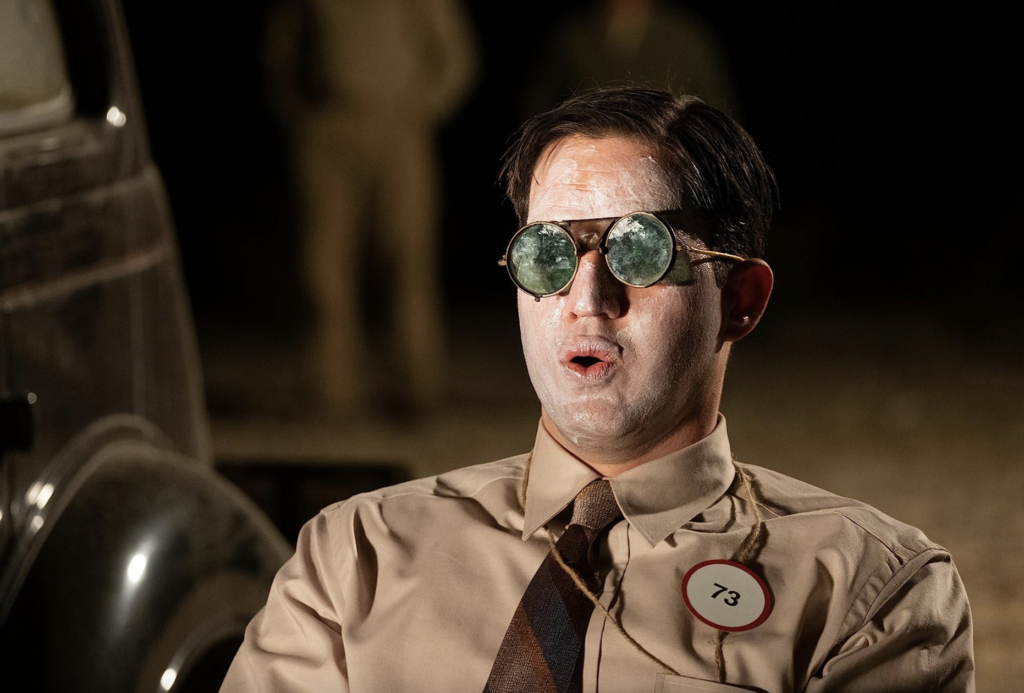
If you will watch Oppenheimer again, pay attention to the scenes at Princeton. Look at how Murphy plays Oppie in black and white – he is cocky, full of himself and very confident. The same scene in color, by the pond is emotionally charged to the point of no return.
Now, the color sequences were written in first person, which was new to both Nolan and Murphy – yet genially executed. These are not exact historical facts from Oppenheimer’s life (the poison apple, for instance), but they are the “what he might’ve felt”. Also, if you thought that Oppenheimer had no easter eggs, here is one: in physics, fission means splitting or separating something in two parts. Scenes in color break the story up into multiple parts.
And then there is fusion, which in science is… The very opposite of fission. It is the joining of two or more parts together from a single thing. At the end of the film, we learn the theme of rivalry between Strauss and Oppenheimer. And that is something that was quite unclear at the beginning, so overall the story suddenly fits together.
You think because you let them tar and feather you that the world will forgive you? They won’t.
And then there was the Trinity test scene, that absolutely blew me away. And if that wasn’t enough, there was the one that came after, so addressing the people of Los Alamos. But let me talk about the atomic test first. Having it shown from different points of view – quite literally different observatories – allowed audiences fully immerse in that shocking, horrifying experience. The silence speaks louder than words always, but the one used in Oppenheimer was practically screaming through the IMAX sound systems.
Every time, I held my breath. Each time, I felt the anxiety rising in me, my heartrate quickened. I felt like I was there with them, sick but compelled enough to never look away. I didn’t want to blink, fearing missing the moment. Or any moment, for that matter. To be honest, I was almost sure they wouldn’t let us hear the sound of the explosion. And then it hit me (hehe, I am on a pun-roll today): light travels so much faster than sound. LOL. Am I a scientist or what?
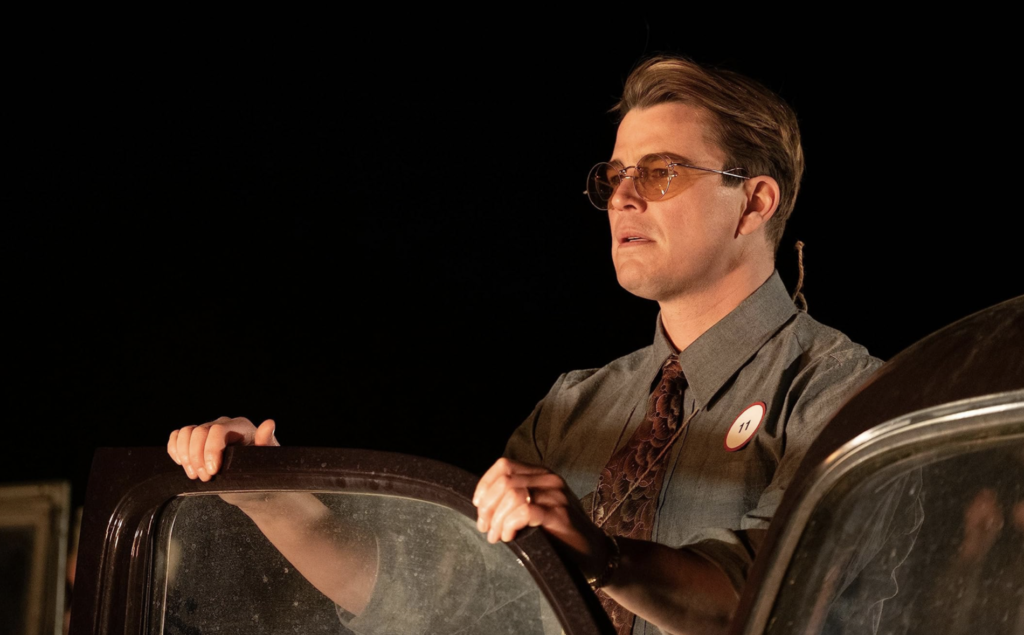
The scene at the school changed everything. From the initial “technical” euphoria (because the bombing was technically successful, right?), the realization of “playing God” hit Oppenheimer and all of us like a ton of bricks. Now the question here is: why now? Did they really have to use it to fully understand it? These are the things that we will never really know. Regret is a very powerful thing, dawning and sinking our hearts.
If I was to choose “best moments” from Oppenheimer, I would for sure choose the above two. Them and Oppenheimer’s youth, along with Kitty’s testifying performance. But it’s hard to choose, because this film is a collection of moments, each one as significant as the Trinity test or the actual bombing (which Nolan decided not to show/recreate; and good. Why? Oh come now, Lot. The greatest fear/threat is the one you can’t see, right?)
“When I came to you with those calculations, we thought we might start a chain reaction that would destroy the entire world…”
“I remember it well. What of it?”
“I believe we did.”
That last scene, like I said, deserves a place in any museum, played on repeat for everyone to see and feel it. I tried to think of something equally powerful in any different film, but I just can’t. Am I blinded by my love for Nolan? Maybe, but… I don’t care.
Christopher Nolan delivered the most important film of the decade, masterfully tricking us into getting on the biggest, scariest and thought-provoking emotional rollercoaster. Now, were there any downhills? Not in my opinion, but marauders will probably say something.
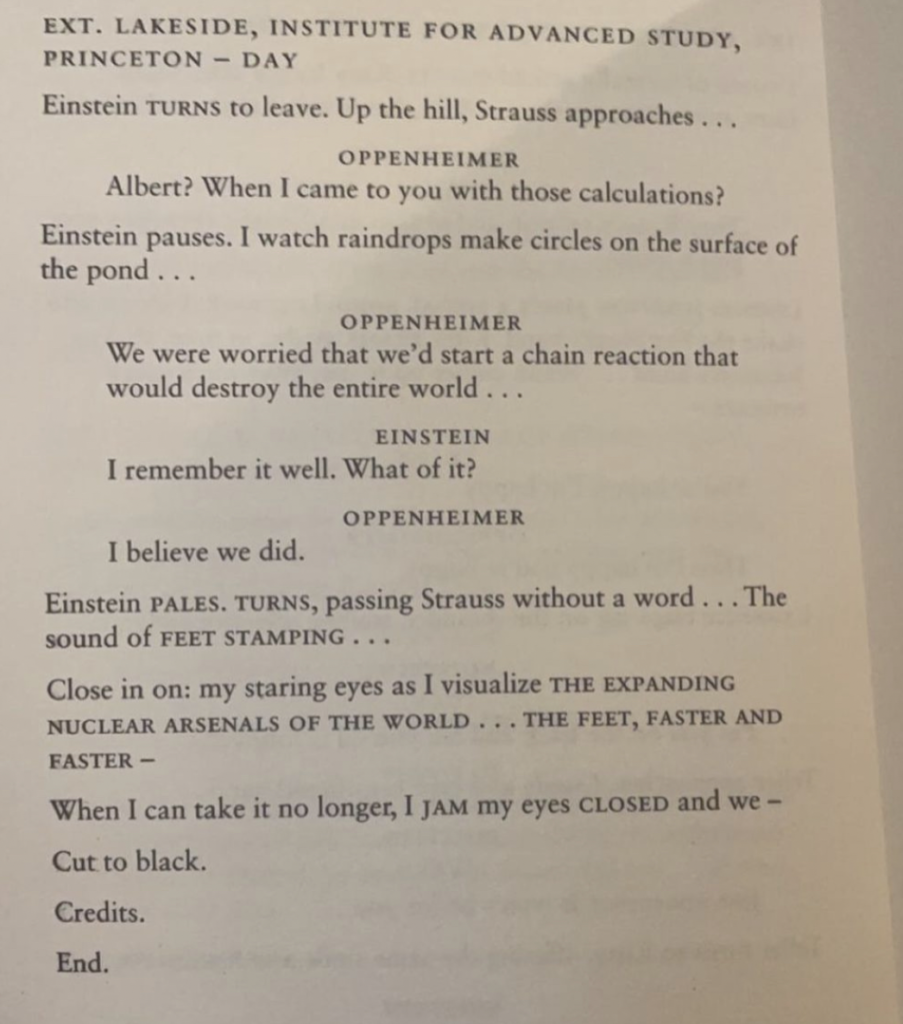
Biopics are tough pieces of material to work on, but Nolan found a way to keep me engaged, even in such an abstract setting. Because to me, atomic bombs are abstract and it’s hard for my brain to get a full grasp on it. Yet, I’ve seen this film 7 times without getting bored or looking at my watch.
As I am writing this I feel like there’s a million other things I want to say, but I need to let them brew for a little longer. And that’s the beauty of cinema, isn’t it? Not being able to stop thinking about something we watched. Now, imagine talking about it all night.
6 thoughts on “Oppenheimer – the Destroyer of Worlds”